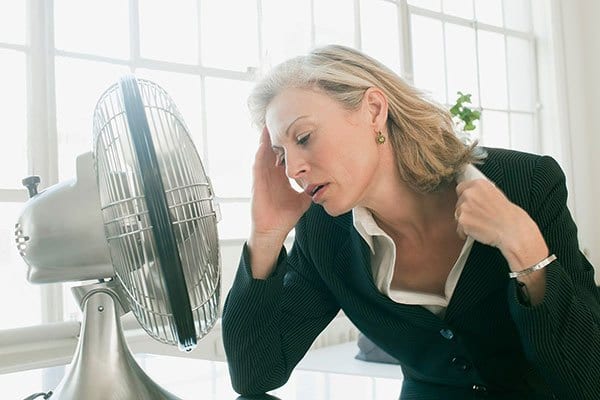Menopause is often regarded as a “scourge” by most women because during and after that period, they usually experience changes in their bodies for “the direction that is considered worse”. After all, menopause is unavoidable and it is “something” that all women have to deal with, without exception. This article will explain how menopause affects the quality of a woman’s voice.
During menopause, women experience a series of biological changes, changes that often not only affect their health but also their quality of life in many aspects. Hormonal changes affect, for example, the voice, which makes it deeper, with the psychological and even professional consequences that this entails. Added to this is the fact that sex hormones influence the physiological state of the vocal folds since these hormones fluctuate a lot throughout a woman’s life (if you are in the reproductive phase or not if you have menstruation if you are pregnant…), these hormonal changes are reflected in the voice. It can also occur in men, but these changes occur later and are not as pronounced as in women.
Researchers warn that 30% of women work with their voice and the drop in tone has a long-term impact on their professional career.

Source: womanlog.com
A woman’s spoken voice drops a semitone after menopause, and for some women, the drop is even greater. And while this tonal shift is barely noticeable to most listeners, it affects professional singers and can have long-term impacts on both their health and careers. Menopause impacts much more than what has been studied until now, and these changes have more importance than is believed in the social and professional lives of women. The impact of menopause can force singers to adjust their repertoire.
Some few studies that have been done on menopause measure the most superficial part of the voice, the acoustic signal, but to know the real effects of hormonal changes associated with menopause, we must also study the vibration patterns, vocal folds, breathing patterns… because any change in these systems has a very big impact, and no matter how small the change, if you are a professional singer, you notice it, it affects you.
In general, almost 30% of the active population depends on the quality of their voice to be able to work: singers, actors, teachers, journalists, politicians, salespeople, lawyers, telephone operators… all professions with a high female presence. Between 35% and 46% of women have symptoms of vocal discomfort and changes in timbre and tone.
If you are a female singer used to singing the highest parts of the scores and, with menopause, your voice loses a semitone, that is going to harm you, it is going to modify your musical instrument, your way of singing, and you are going to need the help of a singing teacher specialized in vocal function or of a speech therapist to adapt or perhaps you will have to change your repertoire.

Source: Pinterest.com
On the other hand, beyond the drop of a semitone, according to a meta-analysis carried out, between 35% and 46% of women present symptoms of vocal discomfort and changes in timbre and tone. Changes in the concentrations of sex steroid hormones; estrogens, progesterone, and testosterone, can affect the quality of the voice and its function as a means of communication and work.
In this regard, in the mucosa of the vocal folds –those that vibrate with the pressure of the air to create the primary sound– there are receptors for sex steroid hormones so that if these are altered, this affects the tissues of the vocal folds, and if these do not vibrate the same number of times per second, that translates into some changes. These changes in the mucosa of the vocal folds could be related to dryness, vocal fatigue, or unexpected changes in the vocal register that many women report after menopause.
The vocal fatigue and decreased ability to project the voice due to menopause can be drastic for actresses or teachers. In the case of the latter, likely, the changes do not affect only them, but also the children they teach, since there are studies that relate learning levels with the characteristics of the voice. More research is needed to offer specialized support and perhaps job protection to the affected professionals. These changes occur when women are fully active from a professional point of view since the average age of menopause is 52 years. In men, the changes occur at older ages when they normally no longer work.

Source: bbc.co.uk
A study, which has received the Hamdan International Presentation Award from The Voice Foundation and will be published in the Journal of Voice – finds that the female voice is twelve semitones (a musical octave) higher than the male ones, and with menopause, there is an average drop in the tone to 180 Hz, a tonal average far from 165 Hz, which is the frequency from which it begins to be difficult to distinguish whether the voice is a woman’s or a man’s.
Other changes
To note, menopause is not the only time in life when the voice changes. The first major change occurs at puberty. According to some studies, with the growth and descent of the larynx that occurs at these ages, as well as hormonal changes, the frequency decreases. In the case of men, it is estimated that the descent is one musical octave, while in women it is three tones on average.
But it is not only physiological factors that influence changes throughout life. There are also social and environmental factors. For example, experts have found that with personal maturity, incorporation into the world of work, and an increase in social responsibility, the changes become more serious, both in men and women. And for additional info, Tobacco, air conditioners, continuous vocal efforts (salespeople, teachers, etc.), or even muscle or bone changes (especially in the cervical spine) can also temporarily or permanently alter the voice.
Need more info about hormonal changes after menopause? You need to visit bywinona.com.
